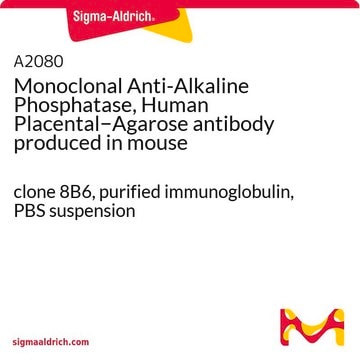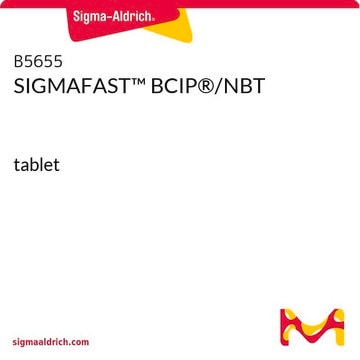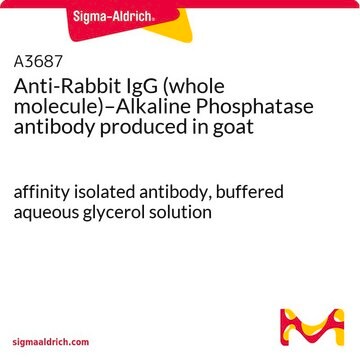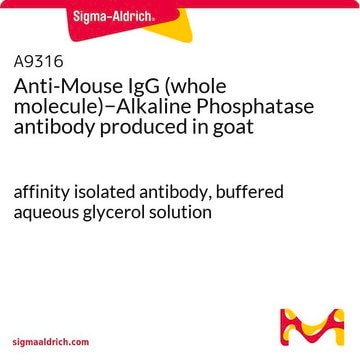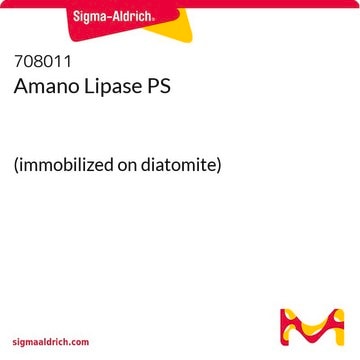A2951
Monoclonal Anti-Alkaline Phosphatase, Human Placental antibody produced in mouse
clone 8B6, ascites fluid
Sinónimos:
Monoclonal Anti-Alkaline Phosphatase, Human Placental, Anti-Phosphatase, Alkaline, Human Placental, PLAP
About This Item
Productos recomendados
origen biológico
mouse
conjugado
unconjugated
forma del anticuerpo
ascites fluid
tipo de anticuerpo
primary antibodies
clon
8B6, monoclonal
contiene
15 mM sodium azide
reactividad de especies
human
técnicas
immunocytochemistry: suitable
immunohistochemistry (formalin-fixed, paraffin-embedded sections): 1:4,000 using human placenta
immunohistochemistry (frozen sections): suitable
indirect ELISA: suitable using whole cells
radioimmunoassay: suitable using radio-immunolocalization of xenografts of human cell lines expressing PLAP in nude mice2
western blot: suitable
isotipo
IgG2a
Nº de acceso UniProt
Condiciones de envío
dry ice
temp. de almacenamiento
−20°C
modificación del objetivo postraduccional
unmodified
Información sobre el gen
human ... ALPP(250)
¿Está buscando productos similares? Visita Guía de comparación de productos
Categorías relacionadas
Descripción general
Inmunógeno
Aplicación
- enzyme-linked immunosorbent assay (ELISA)
- immunocytochemistry
- radio-immunolocalization
- western blot
- immunofluorescence
- immunohistochemistry
Acciones bioquímicas o fisiológicas
Cláusula de descargo de responsabilidad
Not finding the right product?
Try our Herramienta de selección de productos.
Código de clase de almacenamiento
10 - Combustible liquids
Clase de riesgo para el agua (WGK)
WGK 3
Punto de inflamabilidad (°F)
Not applicable
Punto de inflamabilidad (°C)
Not applicable
Certificados de análisis (COA)
Busque Certificados de análisis (COA) introduciendo el número de lote del producto. Los números de lote se encuentran en la etiqueta del producto después de las palabras «Lot» o «Batch»
¿Ya tiene este producto?
Encuentre la documentación para los productos que ha comprado recientemente en la Biblioteca de documentos.
Nuestro equipo de científicos tiene experiencia en todas las áreas de investigación: Ciencias de la vida, Ciencia de los materiales, Síntesis química, Cromatografía, Analítica y muchas otras.
Póngase en contacto con el Servicio técnico

